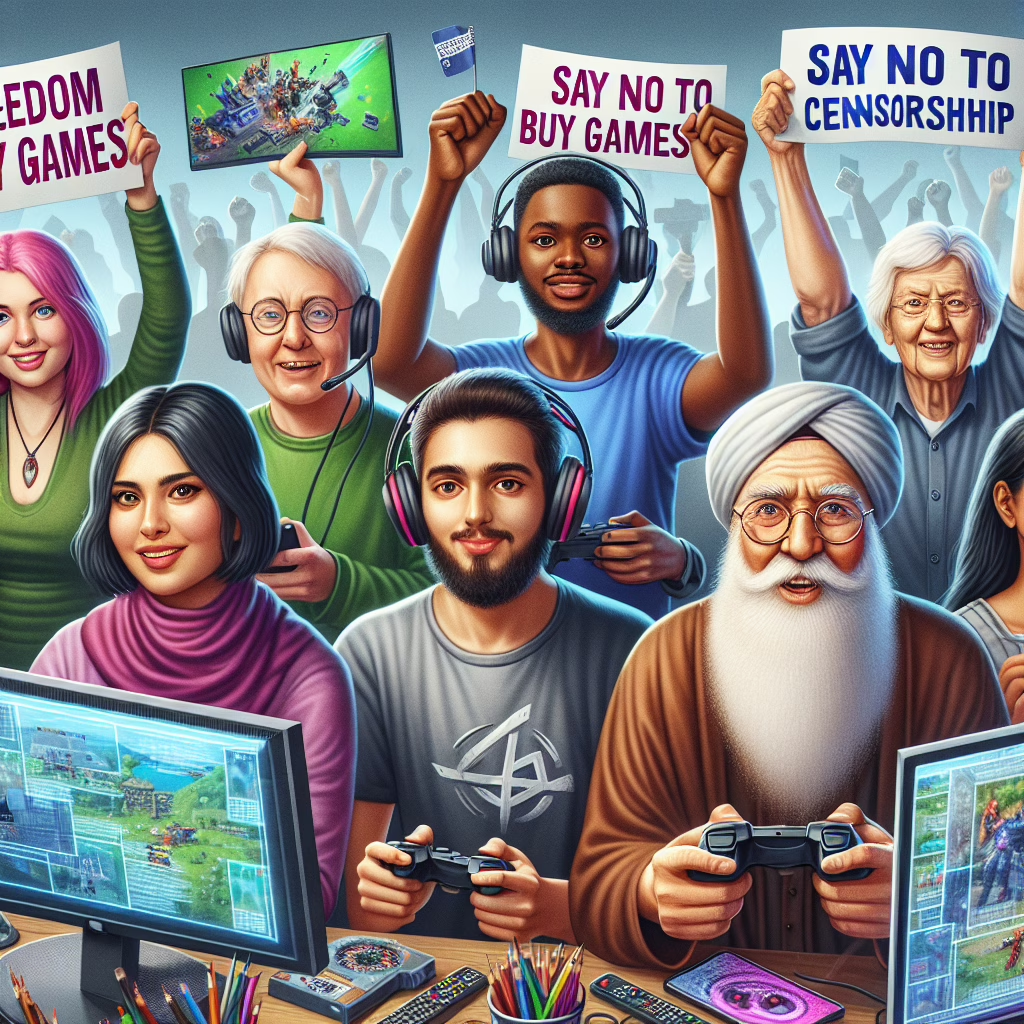In a world where everyone seems to have an opinion about everything, especially on social media, the gaming community has decided to take a stand for their freedom to buy games and express their creativity. That’s right! Over one million gamers have boldly declared their rights in protest against ongoing censorship surrounding NSFW games. Who knew that such a vast number of people could unite over pixels and plot twists?
The Rise of the Freedom to Buy Games Movement
The movement, dubbed the freedom to buy games, emerged as a reaction against various platforms tightening their grip on what can be sold or played. Gamers across the globe rallied together, declaring, “No more shall we be told what we can enjoy!” It’s almost poetic. A digital revolution forged, not with swords, but with keyboards and gaming controllers.
As the curtain rises on this movement, let’s take a closer look at the reasons behind this surge of support. Could it be that players are tired of seeing their favorite content censored? Or perhaps they’re simply looking for an excuse to flex their gaming muscles in unison? Either way, it’s clear that when gamers unite, they can create quite the uproar!
Censorship: The Digital Hydra
Censorship in the gaming industry can feel like battling a multi-headed hydra. For every title that gets released without any fuss, two more find themselves tangled in red tape and digital shackles. The debate centers around whether developers should be allowed to include explicit content and if players should have the choice to engage with it.
Many gamers argue that art is subjective and should reflect reality—warts and all. After all, who wants to play a game that sanitizes every aspect of life? Imagine a cooking simulator that only lets you bake cookies without discussing the existential dread of overcooked soufflés! Now that would be a dull affair.
The Impact of Player Activism
The freedom to buy games movement shines a spotlight on how player activism can influence game development and distribution. Developers are now faced with a choice: listen to their audience or risk losing them altogether. And let’s be honest; nobody wants to lose out on a potential revenue stream—especially when those streams can turn into raging rivers of dollar bills.
This wave of activism is reminiscent of other movements within pop culture where fans took matters into their own hands. From petitions demanding the release of long-lost movies to boycotting products from companies that don’t align with consumer values, gamers are proving they can wield their collective power effectively.
A Call for Greater Transparency
Transparency is key in any relationship, especially between developers and gamers. As part of this growing movement, players are calling for more open conversations about why certain content gets censored and what guidelines govern these decisions. Wouldn’t it be refreshing if gaming companies could say, “Hey folks! Here’s what we’re thinking,” instead of keeping everything behind closed doors?
Imagine a world where game publishers host town hall meetings (virtually, of course) where fans can express their thoughts on censorship issues while munching on virtual popcorn. It sounds like a dream come true!
The Future of Gaming: What Lies Ahead?
As we journey into the future of gaming, it remains unclear how this movement will unfold. Will it lead to greater freedom for developers? Or will it merely be another footnote in the annals of gaming history? One thing is certain: the freedom to buy games movement is here to stay, at least for now.
As more gamers join forces, we might witness significant changes in how platforms handle content creation and censorship. Perhaps we’ll see more inclusive policies that respect both artistic expression and player choice.
In conclusion, whether you’re a casual gamer or a hardcore enthusiast, it’s essential to recognize the significance of this movement. The fight for freedom to buy games is not just about NSFW content; it’s about ensuring that all voices in the gaming community are heard and respected.
What do you think? Are you ready to join the ranks of those advocating for change? Share your thoughts below!

